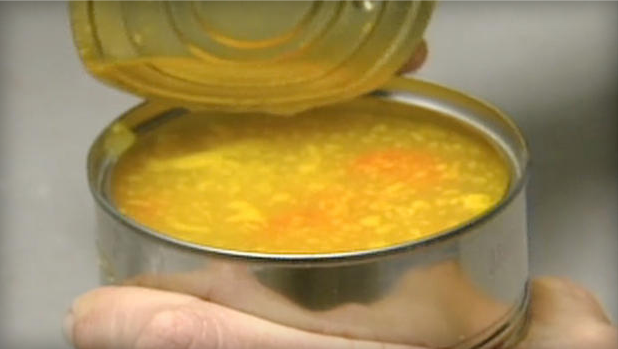Ryan Jaslow
CBS News
October 15, 2013
Exposure to the BPA chemical, which is commonly found in food packaging, may increase miscarriage risk in pregnant women.
A new study presented Oct. 14 at the American Society for Reproductive Medicine’s (ASRM) annual meeting in Boston found women with the highest levels of BPA, or bisphenol A, in their blood were significantly more likely to miscarry than women with the lowest levels of the ubiquitous chemical.
“Many studies on environmental contaminants’ impact on reproductive capacity have been focused on infertility patients and it is clear that high levels of exposure affect them negatively,” Dr. Linda Giudice, president of ASRM, said in a statement. “These studies extend our observations to the general population and show that these chemicals are a cause for concern to all of us.”
BPA is used to line cans to prevent corrosion, but it is also found in plastic bottles, tableware and food storage containers. BPA is referred to by researchers as a “hormone-disrupting chemical” due to links to health risks including reproductive problems, neurodevelopmental delays, diabetes and obesity.
The chemical is banned in Canada and the European Union. In the United States, BPA was banned from baby bottles and sippy cups in July 2012, but the Food and Drug Administration has rejected an outright ban of the chemical, saying current scientific evidence “does not suggest that the very low levels of human exposure to BPA through the diet are unsafe.”
Researchers recruited 114 women in early pregnancy and gave them blood tests, storing their samples. Blood was later tested in women who had given birth and women who had a miscarriage in the first trimester. They assigned women into four groups based on their blood levels of BPA from lowest to highest, and then assessed miscarriage risk for each group.
Women who had a miscarriage had higher BPA levels on average than women who had live births. Miscarriage risk rose with increasing levels of BPA in mom’s blood, with women in the group with the highest levels at about an 80 percent increased risk.
Study author Dr. Ruth Lathi, director of the Recurrent Pregnancy Loss Program, Reproductive Endocrinology & Infertilty Division at Stanford University, told the Associated Press that the small study is not a major cause for alarm, but “it’s far from reassuring that BPA is safe.”
“It may be that women with higher BPA levels do have other risk factors” for miscarriage that might be amplified by BPA, she said.
